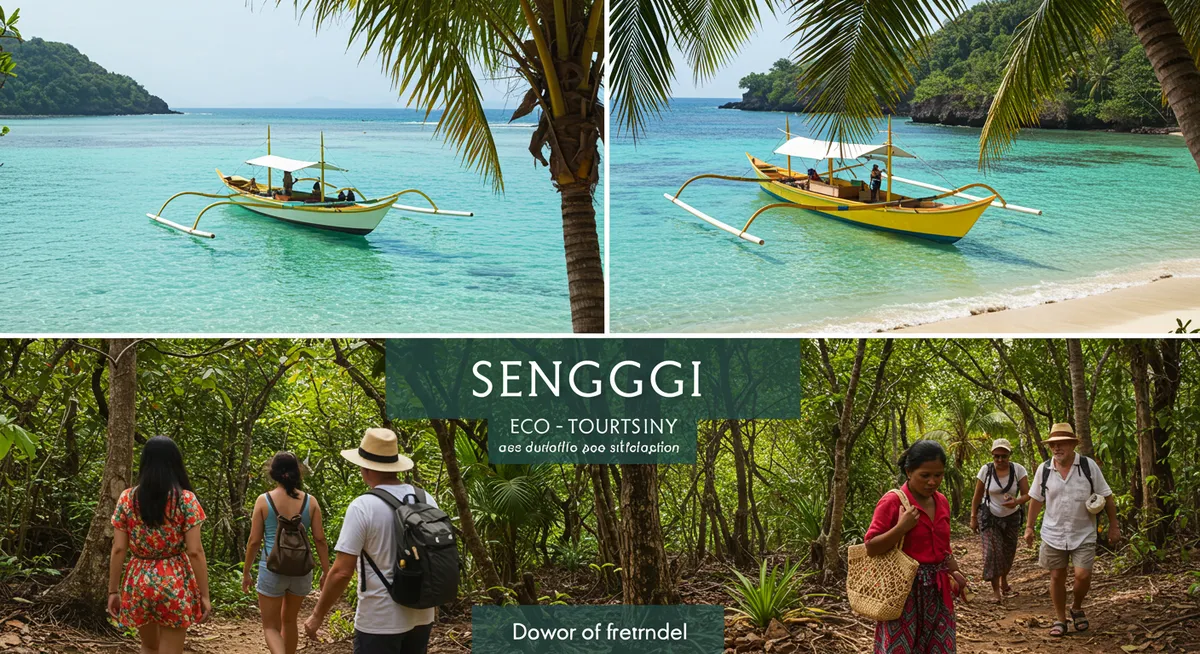
Top Senggigi Eco-Tourism Activities Guide
Table of Contents
Want to find the best nature experiences for this destination? Chat with our nature tourism specialist!
Get Nature TipsCategory: senggigi-ecotourism-activities
Discover Sustainable Senggigi Eco-Tourism Activities
As a seasoned travel writer who's spent considerable time exploring Lombok's unique landscape, I've witnessed firsthand how Senggigi has embraced sustainable travel. This charming coastal town, often celebrated for its stunning sunsets, is increasingly becoming a beacon for environmentally conscious travelers. For those seeking to immerse themselves in nature while ensuring their footprint is minimal, Senggigi offers a wealth of incredible opportunities. From supporting local conservation efforts to engaging in responsible outdoor pursuits, embracing eco-tourism here enriches both your journey and the local community.
Engaging with Pristine Coastal Environments
Senggigi's coastline is a jewel, offering serene experiences like kayaking or paddleboarding in clear waters, minimizing impact on marine life. When you engage in these Senggigi eco-tourism activities, you're directly supporting local entrepreneurs who rent out equipment and guide sustainable excursions. I always advise travelers to choose local operators for a truly authentic and responsible experience. Exploring the best beaches in Senggigi for nature lovers, such as those south of the main strip, often reveals hidden coves perfect for quiet reflection and appreciating the untouched beauty. Remember to carry out all your waste, leaving nothing behind but footprints.
Inland Adventures: Waterfalls & Cultural Immersion
Beyond the coast, Senggigi’s hinterland offers a different array of responsible adventures. Venturing inland to explore lush rice paddies and cascading waterfalls, like those accessible from nearby villages, is a fantastic way to engage in eco-tourism. These waterfalls near Senggigi, Lombok, provide refreshing escapes and opportunities to support local guides who understand the delicate ecosystem. Partaking in village tours allows visitors to learn about traditional Sasak culture, purchase handmade crafts directly from artisans, and contribute to the local economy ethically. These authentic interactions are pivotal for enriching your travel while respecting the community's sustainable practices.
Responsible Trekking and Nature Exploration
For the more adventurous, participating in guided treks provides an incredible opportunity to experience Senggigi's biodiverse landscapes responsibly. While Mount Rinjani is a major draw, there are numerous smaller trails and viewpoints that offer stunning vistas without overwhelming sensitive areas. Engaging in these specific Senggigi eco-tourism activities often means booking through agencies committed to ethical practices, ensuring minimal environmental disturbance and fair wages for porters and guides. From my own experiences, starting your Mount Rinjani trekking from Senggigi requires careful planning and selection of certified eco-friendly tour operators. Prioritizing responsible waste management and staying on marked trails are crucial for preserving these pristine natural attractions.
Supporting Local Conservation and Community Projects
A core aspect of eco-tourism involves actively supporting local conservation efforts and community-led initiatives. In Senggigi, this can range from participating in beach clean-ups to visiting local farms that practice sustainable agriculture. Many accommodations now integrate eco-friendly practices, reducing plastic use and sourcing local produce, which is a great indicator of their commitment. Seek out places that proudly display their sustainable credentials; my personal tip is to look for establishments that actively involve the community in their operations. Discovering other Senggigi nature attractions often reveals opportunities to contribute to small-scale environmental projects, making your trip truly impactful and regenerative.
Frequently Asked Questions
What makes an activity "eco-tourism" in Senggigi?
How can I ensure my visit is sustainable?
Are there specific eco-tourism certifications to look for in Senggigi?
Embracing Senggigi eco-tourism activities allows you to experience the breathtaking beauty of Lombok while contributing positively to its preservation and local communities. From exploring pristine beaches sustainably to engaging in responsible inland adventures and supporting conservation efforts, every choice you make enhances the authenticity and impact of your journey. By opting for eco-friendly practices, you help safeguard Senggigi's unique charm for future generations. Plan your eco-conscious adventure today and discover the profound rewards of responsible travel in this Indonesian paradise.